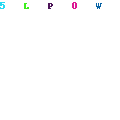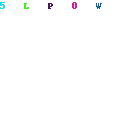Tammy Tipler-Priolo, a certified genealogist, spearheads The Ancestor Investigator, her own venture dedicated to uncovering family histories in Ontario, Canada. During a revealing interview, she laid bare the essence of her path into genealogy and imparted practical advice for those eager to delve into their lineage.
What sparked your initial interest in genealogy and led you to make it your profession?
Growing up, I was always surrounded by the rich tapestry of my family’s past. My mother’s father, a man with roots stretching back to 1882, was our own private historian. With French-Canadian and Irish blood coursing through his veins, he had a gift for healing—a trait he proudly traced back to his ancestors. My mother followed in these nurturing footsteps as a nurse while I pursued studies in Human Nutrition and Horticultural Therapy, drawn by the deep connection between nature and well-being.
On the other side, my father’s dad brought stories from South Africa where he was born in 1906. His lineage boasted English lacemakers from the 1600s and bakers who ran a pub named Rose Violet, Thistle during the 1800s. A shift from Catholicism in our family came when an ancestor chose love over priesthood vows.
Years later, curiosity about my grandmothers’ backgrounds grew stronger, especially after one grandmother passed away without me knowing much about her ancestry. Research unveiled her French-Canadian and Irish heritage with hints of Cree descent as well as connections to United Empire Loyalists—an interesting contrast to her belief of ancestral ties to Windsor Castle guardians.
The loss of another grandmother when I was very young left me wondering about her diverse background—Scottish, Irish, English, German, French-Canadian—and rumored Indigenous links which were eventually proven true through records that confirmed our Algonquin lineage.
Fueled by fascination and assisted by relatives and parents alike, we embarked on excursions that took us to graveyards and historical archives across lands our ancestors once tread upon. This quest for knowledge led me down a path filled with volunteering for genealogical societies before eventually earning distinction at the National Institute for Genealogical Studies in 2003.
Driven by encouragement from others impressed by my dedication towards unraveling familial mysteries spanning continents and centuries alike—I launched The Ancestor Investigator. Through this venture not only did I delve deeper into consulting but also shared insights through writing articles hosting workshops —all aimed at helping others discover their own roots just as vividly painted stories had been revealed to me.
Common error in amateur genealogy research and its prevention
Getting too excited can make you skip important steps in tracing your family history. Check out the Genealogical Proof Standard for guidance.
What’s the best starting point for beginners in genealogy and the initial step in researching family history?
Begin your journey into family history by focusing on what’s already within your reach. Start with your own experiences and memories, gradually tracing back through time. Delve into the treasure trove of documents and photographs you might have around your house. Make it a point to chat with older members of your family, seizing opportunities such as holiday gatherings to gather stories and insights. It’s all too common for people to regret not having these conversations sooner.
Once you’ve collected some initial information, organize it visually using pedigree charts and family group sheets. These tools are invaluable for keeping track of the connections you uncover. You don’t need to spend anything; there are plenty of free resources online where you can find these charts.
To take things a step further, consider employing a digital approach by entering your findings into a family tree program. There’s a variety out there, offered by several companies at no cost. This allows you not only to store but also easily share and expand upon the information you collect.
Do some homework on which software or platform suits your needs best—after all, they’re designed to make this endeavor easier for you. Whether printed or stored digitally, these records become cornerstones in piecing together your family narrative.
Advantages of employing a genealogist instead of doing your own research

Delving into one’s own family history can unveil a deeply personal connection to past generations. This hands-on approach to genealogy offers unparalleled satisfaction, as discovered through my own journey of unearthing Great Grandpa Charlie’s baptismal certificate after a year-long search in the 1990s. The thrill of that find cemented an enduring bond with him.
However, there are instances when hiring a professional genealogist may prove invaluable. These experts can serve as both a catalyst for beginners and a breakthrough strategist for those facing insurmountable obstacles in their research. A skilled genealogist not only brings order and direction to your quest but also crafts bespoke research strategies based on your unique familial inquiries.
Furthermore, engaging with a professional comes with its perks—time and financial savings being chief among them. Their seasoned expertise allows them to hone in on relevant details swiftly and accurately, ensuring that every inquiry is met with thorough analysis and strategic planning tailored just for you.
When should someone think about hiring an expert?
When it comes to seeking assistance, individuals have varied needs and preferences. Some people are short on time and prefer quick answers to their questions, relying on experts for fast solutions. Others might have the time and inclination to delve into research but need a nudge in the right direction from someone knowledgeable.
The key is finding a happy medium between how much time one can dedicate to the task and what resources are at one’s disposal. Not forgetting, of course, the occasional requirement for guidance through unfamiliar territory.
A proficient expert recognizes their role in not just providing answers or directions but also in ensuring that clients grasp the process involved. They guide them adeptly while being mindful of what can realistically be achieved within given constraints.
This approach aligns with principles outlined in the Genealogical Proof Standard, suggesting a structured method to tackle such inquiries thoughtfully and effectively. It emphasizes a thoughtful balance between client’s resources, their needs for guidance, and realistic expectations from the undertaking – all crucial elements for success in this domain.
Have you had a standout moment in your career as a genealogy expert?
In my career as a genealogist, I’ve encountered numerous memorable instances that underscore the unpredictable joy of discovery and the virtue of persistence in research. Imagine spending countless hours searching for a crucial piece of information, close to giving up hope, when suddenly, fortune smiles upon you. A scenario like this played out when my mother, almost by magic, opened a book directly to the page containing the elusive details I had been hunting for hours.
Moreover, emphasizing the importance of patience cannot be overstated in this field. Success in genealogy doesn’t always come swiftly; it often demands a steady commitment to sifting through records and waiting out the release of public documents. This was exemplified in my lengthy association with a client spanning over 15 years —a testament to steadfastness— where our breakthrough only materialized once specific archives became accessible.
Such experiences not only highlight serendipity but also reinforce that patience is truly a virtue in genealogical research. Both elements play pivotal roles and offer valuable lessons on how random discoveries coupled with unwavering dedication can eventually lead to fulfilling outcomes.
What genealogy or history task would you tackle if time wasn’t an issue?
Over several years, a meticulous exploration into the roots of Northern Ontario’s Italian community has unfolded. This journey, rooted in the shared origins from a specific locale in Southern Italy, reveals an intricate web of familial ties among its members. The endeavor involves collecting and analyzing documents related to each family, gradually uncovering their interconnections. Although progress has been slow, significant strides have been made towards mapping out these complex relationships, with DNA testing playing a pivotal role in connecting the dots.
The belief stands firm that it’s only a matter of time before this intricate Italian genealogical puzzle is completely solved. Central to this research process are the Seven Grandfather Teachings—Bravery, Respect, Honesty, Humility, Love, Truth and Wisdom—which serve as guiding principles. Applying these values ensures that one’s search for answers is met with integrity and openness to both anticipated and surprising discoveries.
This narrative captures not just a quest for understanding familial bonds but also underscores the importance of approaching such endeavors with core ethical values. Through patience and adherence to these teachings, every piece of history finds its place in the larger picture of community heritage.


















